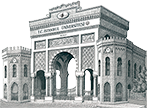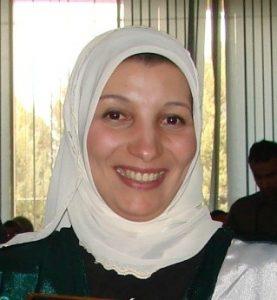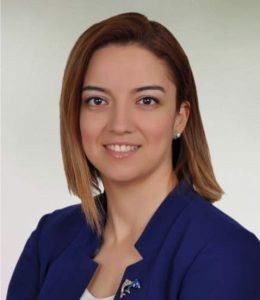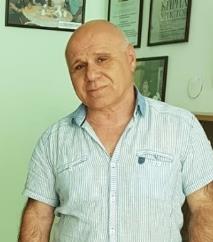Davetli Konuşmacılar

Sushil Sharma, Ball State Üniversitesi’nde hem Dekan Yardımcısı, hem de üniversite bünyesindeki ‘Miller College of Business’ta öğretim üyesi olarak görev yapmaktadır. Dr. Sharma iki farklı doktora derecesine sahiptir. 10 yıldan fazla idari yöneticilik, 25 yıldan fazla ise eğitimcilik tecrübesi vardır. 2008-2012 yılları arasında Bilişim Sistemleri ve Operasyon Yönetimi Bölümü başkanlığı, 2011-2013 yılları arasında da MBA ve bazı sertifika programlarının yöneticiliğini yapmıştır.
Ball State Üniversitesi’ne katılmadan önce Hindistan Yönetim Enstitüsü’nde Doçent Doktor olarak görev yapmış, Kanada’da Waterloo Üniversitesi’nde misafir öğretim görevlisi olarak bulunmuştur. Ayrıca Hindistan Yönetim Enstitüsü’nde sayısal sistemler ve enformasyon teknoloji sistemleri grup başkanlıklarını yapmıştır.
Öncelikli araştırma alanları; bilişim sistemleri güvenliği, e-öğrenme, e-devlet, bilgisayar ortamlı iletişim, insan bilgisayar etkileşimi ve sosyal enformatiktir. Lisans ve yüksek lisans seviyesinde, veritabanı sistemleri, ERP sistemleri (SAP), elektronik ticaret, bilgisayar ve ağ güvenliği, yönetim bilişim sistemleri, sistem analizi ve tasarım, dağınık bilgi işlem sistemleri, bilgisayar ağları ve enformasyon sistemleri ile bağlantılı dersler vermiştir.
Dr. Sharma, eğitimci ve araştırmacı olarak bir çok ödüle layık görülmüştür. Birden fazla araştıma desteği almış ayrıca sayısız profesyonel başarısı olmuştur. ‘Cyber Slacking’ hakkındaki çalışması A.B.D’de birçok medya ve haber kanalı tarafından ilgi görmüş ve kendisi konuyla ilgili röportajlar vermiştir. E-öğrenme, yönetim, bilgisayar ve ağ güvenliği, ERP uygulamaları , insan bilgisayar etkileşimi gibi konularla ilgili olarak bir çok seminer, akademik konferans ve forumlara konuşmacı olarak davet edilmektedir. Ayrıca Dünya Bankası destekli projelere, firmalara ve çeşitli organizasyonlara danışman olarak destek vermiştir.
Şu anda The International Journal of E-Adoption dergisinde genel yayın müdürlüğü görevini sürdürmektedir. Birçok ulusal ve uluslararası dergide hakem ve yayın kurulu üyesi olarak görev almaktadır.
Konuşma Başlığı: Changing Landscape of Learning Technologies – Virtual Reality, Augmented Reality, Mixed Reality and Beyond
Worldwide, most educators still prefer using the traditional face-to-face method to deliver their lectures in physical classrooms. Over the last two decades, the face-to-face method has been augmented with e-learning, using the internet and virtual environment technologies in virtual classrooms. New learning technologies, such as virtual reality (VR), augmented reality (AR), and mixed reality (MR), will further augment the higher education landscape with the use of virtual classrooms. These technologies are moving content and collaboration into a visual, spatial, and immersive three-dimensional (3D) environment. These technologies are combining Artificial Intelligence tools to create exciting opportunities to revolutionize learning.VR creates a wholly simulated reality; to create a more realistic and immersive experience (e.g. VR headgear or dedicated glasses and 3D programming). On the other hand, augmented reality (AR) superposes 3D objects, media contents or text information onto real-world images, for learners’ interaction and immersion. The combined form of AR and VR creates a MR in which real world with virtual components creates a real-time mixed reality. Using AR and VR tools and headsets, students will be able to experience virtual field trips of historical places, factory and manufacturing environments, as well as conduct experiments, and use gamification elements to create a more engaging learning experience.These technologies are going to revolutionize the learning landscape and take it to a new learning horizon. Researchers are predicting future learning technologies could take us to neuro-reality, in which the real world and the virtual one would be undetectable and technologies may interface directly with the human brain. What are these emerging learning technologies and the next realm of learning using virtual and augmented reality? How will these technologies change the pedagogy and design of curriculum? Will it change the skill sets of teachers and learners? How will we assess the intended outcomes of learning? Addressing how such technologies will change the design and pedagogy of curriculum is the next challenge for educators. This presentation will address these questions.
Kısa özgeçmiş için tıklayınız.
Konuşma Başlığı: A more integrated perspective of the knowledge space and cognitive learning for a professional expertise in an evolving society
Times are changing, the world is changing because the generations are changing, and the university is the institution that is the most affected by changes in society as well as knowledge.
Indeed, in the era of the knowledge economy, two new paradigms emerge on the horizon of university courses: employability (adapting and selling to the job market) and entrepreneurship (creating one’s own company creating one’s own employment). These two paradigms force us to consider learning in a more integrated and innovative way.
Innovation in learning is inevitably driven by innovation in teaching since new learning methods call for new teaching methods (deciding where and when to learn, choosing how and what to learn, weaving one’s network learning and teaching).
Moreover, this university is faced with the dilemma of the teacher who masters the knowledge, facing a student who masters the new tools. In terms of quality of teaching, a selection is already being made on the basis of the use or not of new technologies in teaching.
The new attitudes generated by the change in the construction of knowledge, and more precisely in cognition, are turned towards know-how and know how to be, summoned to professional profiles.
This intervention aims to evaluate the experience of a vocational training program implemented at the University of Constantine3, that of the Management of Architecture and Town Planning Projects, in terms of innovative learning methods and their relationship to the teaching of the project by the project with regard to the targeted professional competency and know-how.
KEY WORDS: Cognitive learning, innovative learning, Know how, know how to be, professional expertise
Lisans eğitimini Yıldız Teknik Üniversitesi Fizik Bölümü’nde tamamladıktan sonra yüksek lisans ve doktora derecelerini İstanbul Üniversitesi İstanbul Tıp Fakültesi Biyofizik Anabilim Dalından almıştır. “Uygulamalı girişimcilik” eğitimini TUSSİDE’den, sağlık işletmeleri yöneticiliği sertifikasını İTÜ’den, “Stratejik teknolojiler ve ürün yönetimi mentorluk” eğitimini TÜBİTAK’tan, “İnovasyon liderliği“ eğitimini ise Bilim Sanayi ve Teknoloji Bakanlığının yönlendirmeleri ile Royal Academy of Engineering’ten almıştır. İstanbul Üniversitesi İstanbul Tıp Fakültesi’nde öğretim üyesi olmasının yanı sıra 2015 yılında Bilim Sanayi ve Teknoloji Bakanlığı Teknogirişim projesi ile girişimci akademisyen olarak İstanbul Teknokentte
Arge çalışmalarına başlamıştır. İÜ İstanbul Tıp Fakültesi Biyofizik Anabilim Dalı Öğretim Üyesi iken, İÜ Diş Hekimliği Fakültesi Ağız Diş ve Çene Radyolojisi’nde görevli Uzman Dr. Hülya Çakır Karabaş ile birlikte geliştirdikleri “El Kullanmadan Dişleri Fırçalama Cihazı” buluş başlıklı patent başvurusuyla 10. Kore Kadın Buluşçular Sergisi’nde ülkemizi temsil etmiştir. 2015 yılında Türkiye’de bir ilk olan Tıbbi tasarımların yapıldığı bir laboratuvar olan ve İstanbul Üniversitesi İstanbul Tıp Fakültesi yerleşkesinde bulunan “3 Boyutlu Tıbbi ve Endüstriyel Tasarım Laboratuvarı”nın, 2018 yılında çalışmalarına başlayan “TETLAB Fikir Fabrikası”nın kurucusu ve yöneticisidir. 17 patent 2 faydalı model başvurusu, 11 ödülü bulunmaktadır.
Konuşma Başlığı: 3D Printing in Medical Education
With the invention of 3D printing technologies, in the last 30 years, 3D models have gained much speed and acceleration compared to the previous generation of models. The production of three-dimensional structures with complex geometry is both an electrical component of jewelery in the industry; as well as to provide rapid prototyping and production up to the production of personalized consumer products at home. In addition to applications in manufacturing and consumer sectors, 3D printing is also challenging in the field of science and education. It is used especially in medical education, specialist education and education of the visually impaired. As with Watson and Crick’s modeling of DNA, 3D modeling can now easily model complex molecules, protein interactions. Orthopedics and traumatology, anatomy, plastic and reconstructive surgery, general surgery and dentistry are used in clinical dallards from 3-D images. In the case of establishing the disease model in which the tumor tissue is related to neighboring organ-tissues, the surgical technique is determined (laparoscopic operation-open operation), the operation is open, the patient is informed about the location of the incision and the patient is operated, has an intensive use in the preparation.
LG.V. Balakchiev was born in 1954 and was graduated respectively from Technical School in Dimitrovgrad (1974) and from Shumen University named “Konstantin Preslavski” (1980) on the subject Bulgarian Filology. After a period of serving as a teacher he was firstly director of Nikola Jonkov Vaptsarov Primary School during year 1983-1985, director of Hristo Botev Primary School during years of 1985-1987 and currently he is director of Kiril Hristov Primary School in Stara Zagora. He and his school have been involved in a number of EU projects and are currently conducting the “Innovative School” project. G.V.Rodicheva Balakchiev knows Russian.
Konuşma Başlığı: Innovation in Education: Application of Digital Technology in Teaching at Kiril Hristov School in Bulgaria
We are living in a period when the instructional models in education are rapidly changing. With the extensive active participation of teachers and electronic books in teaching and learning processess, traditional models of education are less used.
In this presentation we will share our experienses in applying digital technology and using electronic boks in teaching at Kiril Hristov primary school in Stara Zagora town (Bulgaria) which is financed by municipality and which is one of the most sucsesful schools in the town and in the country. Also, we will report on theachers’ and students’ oppinions regarding such kinds of innovative initiatives in the school.



